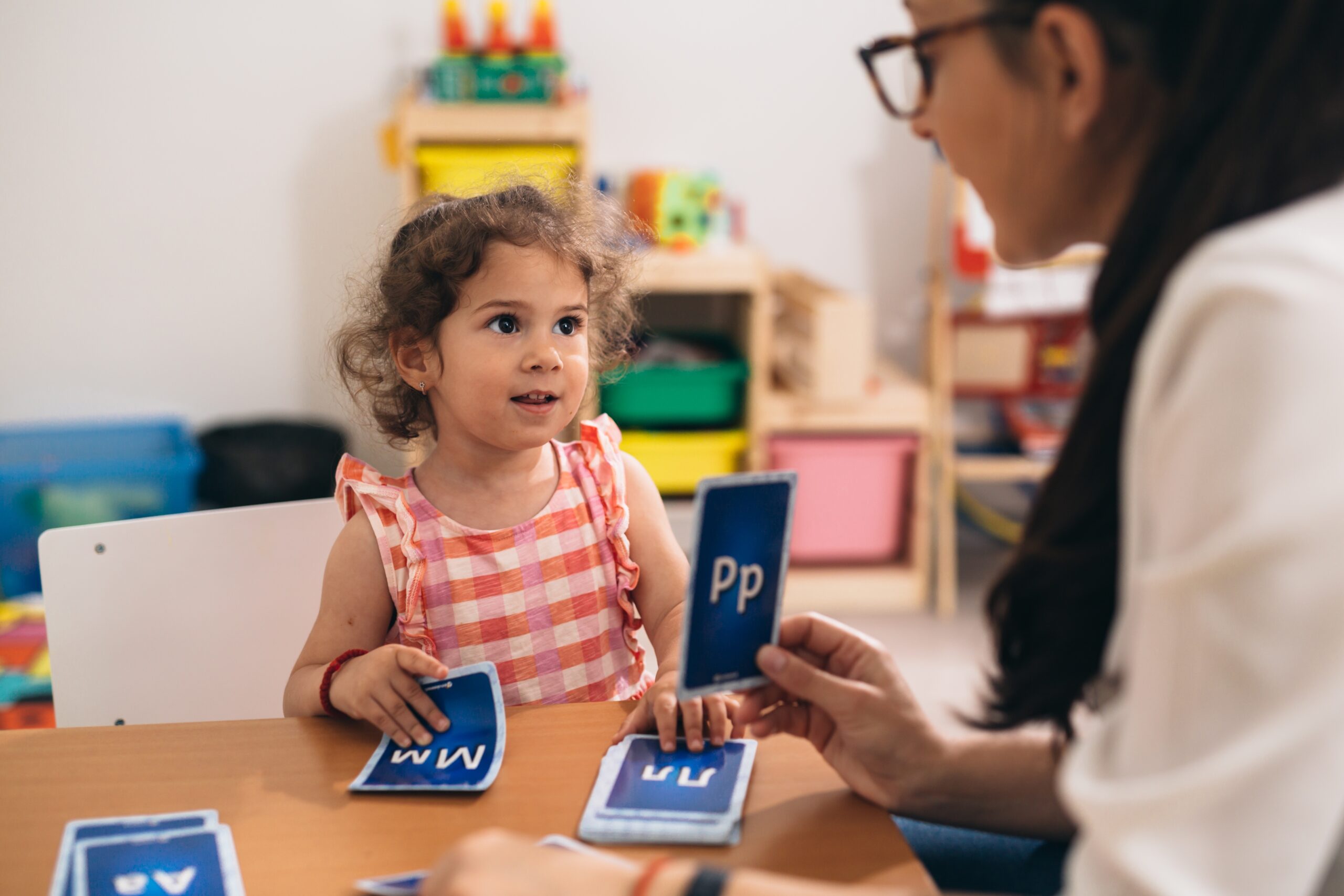
Benefits of Speech Therapy for Children
- Posted by Pediatric Therapeutic Services
- Categories Blog
- Date June 7, 2024
Not every child is able to pick up communication skills automatically. Speech therapy is a helpful tool for children struggling with pronouncing words, speech disorders, or stuttering.
School administrators and teachers can help their students develop better communication skills. Pediatric Therapeutic Services (PTS) and the therapists who work alongside us in schools help children access the benefits of speech therapy to better communicate with adults and their peers as they learn.
Why Might a Child Need Speech Therapy?
Speech therapy aims to help children and adults with speech disorders, stuttering, pronouncing words, and the volume or speed of speech. Some children require speech therapy to reach developmental milestones or recover from an illness or injury.
All children can benefit from speech therapy, making it easy to implement in schools or group settings. PTS offers a Multi-Tiered Systems of Support (MTSS) approach, which ensures well-rounded support for those who need it. There are three tiers of MTSS:
- Tier 1: Classroom-Level Support
- Tier 2: Short-Term Small-Group Support
- Tier 3: Individual Therapeutic Support
Teachers and speech therapists can work together to help students complete exercises focused on improving their communication skills while also keeping an eye out for students needing support in a small or more individualized setting. Kids can move between support tiers as needed, keeping caseloads lighter and more students with their peers.
Benefits of Speech Therapy
Speech therapy has a variety of benefits for children, including the following:
Improves Communication and Reduces Misunderstandings
Being understood is a big part of communication. Children who need speech therapy may struggle with communicating with those around them and face frustrations when they aren’t understood. Teaching children to communicate, pronounce language clearly, and even use assistive technology can ensure that children can communicate with the adults around them and with their peers.
Fewer misunderstandings also lead to less frustration for the child and fewer outbursts around that frustration.
Helps Develop Social Skills
As communication and speech skills improve, so do social skills. Interacting with community and peers is essential to children growing as social beings, learning social cues, and integrating more into society as their own person.
Roleplaying with peers or therapists and playing with toys or games can help children improve their social skills and perform speech therapy exercises without realizing that they are doing so.
Improves Reading Skills
As children learn more about properly pronouncing letters and identifying words, their reading skills improve. Children can begin to expand their vocabulary as they read because they can identify the words and letters they’re reading more easily.
If you’re reading aloud to a child, they may be able to listen along more attentively because they have a better understanding of the words they’re hearing.
Helps a Child Develop Alternative Communication Methods
Speech therapy can help a child communicate with more than just their voice. Speech therapists can teach children strategies to aid communication, including sign language, hand gestures, and facial expressions.
Children who struggle with speech may also benefit from shortening words or using specific sounds they can make to mean certain things. This will be individual from child to child, but therapists, teachers, and parents can work together to ensure they know what the child is communicating with these shorter words/sounds.
Introduce Speech Therapy Into Your Schools Alongside PTS
Speech therapy can benefit many children in schools, and routine exercises can be easily integrated into classrooms. The therapists who work alongside PTS can help your children develop their social skills, improve communication, and enhance their reading comprehension. Partner with PTS and add speech therapy to your schools today.
You may also like

Autism Awareness Month

World Down Syndrome Day

